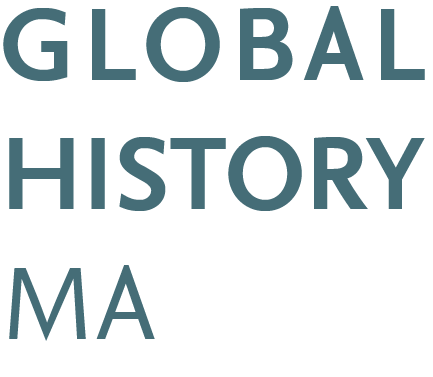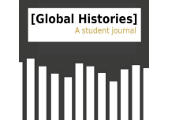FAQs Application
General Application
If you received your BA at a university in Germany, the application process for the MA degree is handled by FU. The standard process of applications for consecutive MA courses of studies at Freie Universität Berlin applies.
For detailed information, please go to the FU Berlin’s general admission website.
In general, during the application window, you must:
1. Fill out the online form which can be found here.
2. Electronically upload the necessary certifications to the application portal.
Unfortunately, applications that are sent directly to the FU Berlin’s Friedrich-Meinecke-Institut cannot be considered.
If you have applied for immediate admission due to extreme hardship within the online application, please send the following documents via mail to Freie Universität Berlin (email and fax are not accepted) :
- the signed application form, the completed special application sheet along with all documents supporting your special application as officially certified copies
If you earned your degree from a university outside Germany please see this page for details on how to apply.
Yes, if you are an international student you need to follow two steps:
Step 1: Apply for a VPD (“Vorprüfungsdokument” = preliminary review documentation) from uni-assist. For information and step-by-step instructions on how to do this, please see here and here. Important: Please make sure to apply for the VPD well ahead of time to account for processing, at least 6-8 weeks before our program's official deadline of 31 May!
Step 2: Submit your VPD document and all other required documents to FU's online application portal before the application deadline (May 31). For a full list of all required documents, please see here.
It is theoretically possible to apply in January 2025 for entry into the course in the 2025 summer semester, which starts in April 2025. However, applying for the summer semester is rather tricky since it means applying for entry into a higher semester. In practice, applying for the summer semester only really makes sense for students who are already enrolled in a different MA program and would like to switch to the Global History MA program. It can also make sense for students who have already completed a master’s degree in a relevant subject and would like to study the MA Global History as a second master’s degree. If you are still interested in applying for the summer semester, please contact us at globalhistory@fu-berlin.de.
In all other cases, we recommend applying for the winter semester instead (i.e., for entry into the first semester of the MA program). The application window for the 2025/26 winter semester, which starts in October 2025, will open in April 2025.
The success of your application depends solely on whether you meet the required criteria for the program and the grade you received for your undergraduate degree. There isn’t a set minimum grade that you need to achieve to be accepted. Rather, admissions are based on the “Numerus Clausus” system: The Numerus Clausus is determined by the ratio of available slots to the number of applicants. Since the NC is determined annually by the number of eligible applicants, we cannot make any predictions ahead of assessment. But you can have a look at the Numerus Clausus from previous years to get an idea of the numbers: https://www.fu-berlin.de/studium/docs/DOC/nc_master.pdf
Some additional information on the Numerus Clausus and about common misconceptions can be found here: https://www.fu-berlin.de/en/studium/information_a-z/ncmerkblatt/index.html#Misconceptions
No. As the success of your application solely depends on whether you meet the required criteria for the program and the grade you received for your undergraduate degree, the inclusion of a personal statement, CV or letter of recommendation will not enhance your chances of being accepted.
(Exception: you may want to explain your additional qualifications or your choice of studies if unorthodox enough to require it - for example, those applying for a double MA need to explain their reasoning – see above.)
Generally speaking, no (see also “Do I need to include a personal statement, CV or letter of recommendation?”). You may, however, include supportive documents such as further language certificates, certificates of internships you conducted and deem relevant for the program, or certificates of stays abroad that also carry some relevance for the program.
Degree Requirements
Yes, if you provide official, provisional evidence from the examination office of your university or faculty that includes a preliminary final grade and certifies that you have already earned at least two-thirds of the necessary credit points. It is not sufficient to calculate the preliminary final grade yourself. The certification must be handed in by the application deadline or your application will not be considered.
Most likely the answer is no. Since successful applicants to the program are required to have earned at least one third of their undergraduate degree's total credit points in courses with a history or area studies focus, students who hold a BA in international relations are usually not eligible for the program. The reason for this is that international relations courses normally don't put an emphasis on historiographical aspects. In addition, they do not qualify as area studies as they are mostly concerned with the relations of a number of regions and do not focus on building expertise on one particular region.
Since this is a consecutive MA program your chances will be limited. However, the examination board will decide whether your degree is equivalent to a degree in history or area studies based on the courses you took for your degree.
If you did not major in history or area studies, please include a transcript of records that shows that at least one third of your degree's total credit points were in history or an area study. Your area studies courses should reveal a focus on one region.
Language Requirements
The MA Global History is an English-language program. Applicants to the MA program must prove with their application that they have English skills at C1 (CEFRL) level. Please refer to the Language Requirements section for more details.
There are two cases where you would not need to provide an English test certificate. 1) If you have studied for at least one year at an English-language university in an Anglophone country, then that would be sufficient, or 2) If your bachelor’s degree also had a C1 level English requirement, then that would also be sufficient. Otherwise, you would need to take a standardized English test and include the test score with your application documents.
Please see here for a list of the tests we accept, along with the required minimum scores: https://www.global-history.de/admissions/language/index.html
The MA Global History is an English-language program. Applicants to the MA program must prove with their application that they have English skills at C1 (CEFRL) level. German is not required. For more detailed information on our language requirements, please see here: https://www.global-history.de/admissions/language/index.html
Visa & Admission
You should start the visa application process as soon as possible. You do not need to wait for your acceptance letter to do so, but can apply for a prospective student visa, which can then be converted to a residence permit later on. You can find more information on the DAAD website. We are not able to support you through the visa process. We recommend that you speak to the German embassy/consulate in your country.
There are no specific scholarships for the MA Global History, but students can apply for funding independently. A variety of German organizations and foundations offer scholarships for international students in Germany. Each year, several global history students apply successfully for funding from scholarship programs. For more information and some helpful links, please see here: https://www.global-history.de/admissions/fees/index.html.



